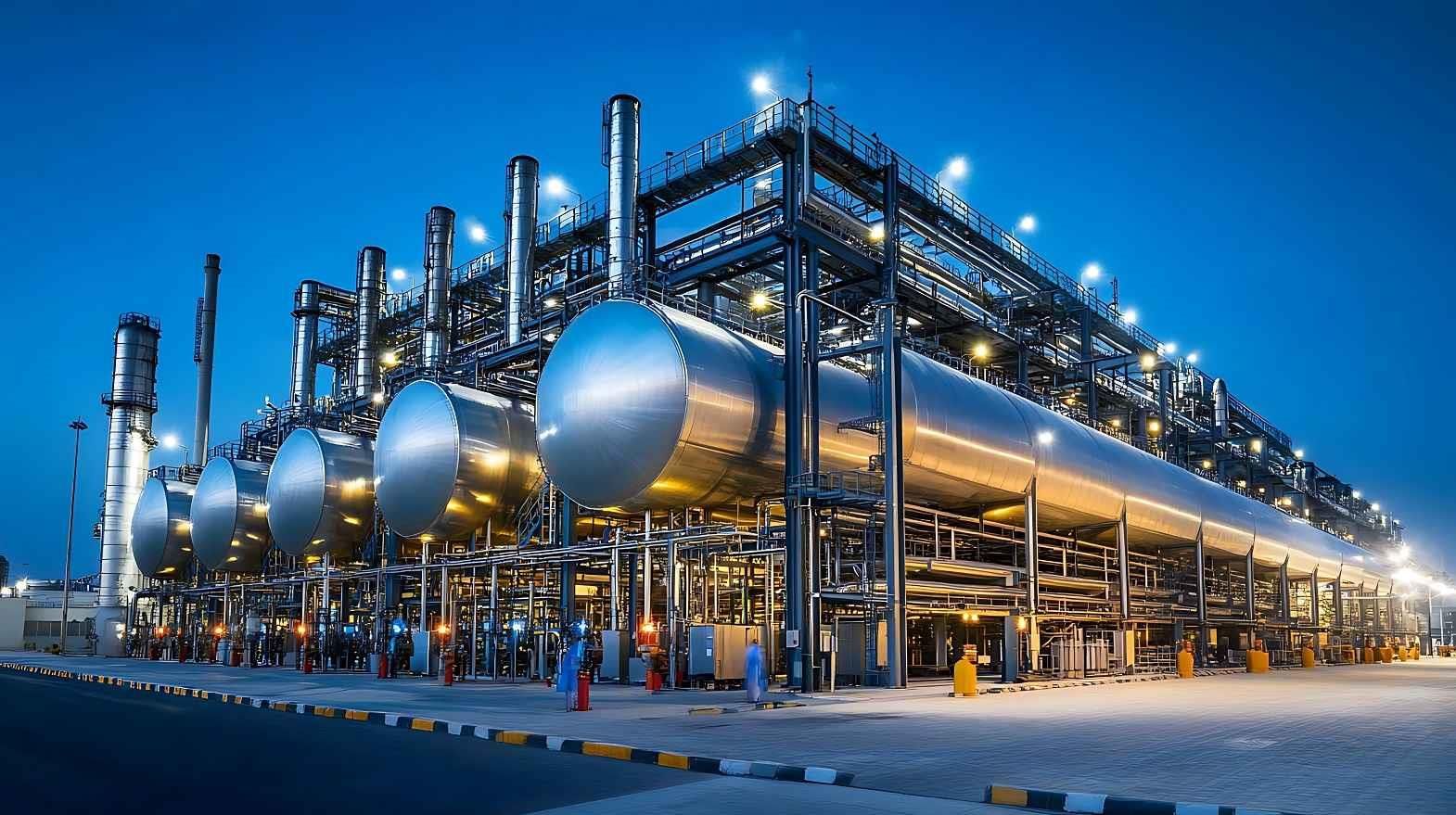The Saudi Arabian chemicals sector stands as one of the pillars of the Kingdom’s economic diversification strategy, marking its importance in the Vision 2030 initiative. With its abundant hydrocarbon resources, strategic location, and government-backed initiatives, the chemicals sector has emerged as a key driver of economic growth and global competitiveness.
Dominance in Petrochemicals
Saudi Arabia is one of the largest producers of petrochemicals globally, leveraging its vast oil and natural gas reserves to manufacture base chemicals. SABIC (Saudi Basic Industries Corporation), a state-owned giant, leads this charge, contributing significantly to the sector’s revenue. In 2023, SABIC reported revenues of SAR 177.3 billion ($47.2 billion), showcasing its critical role in Saudi Arabia’s chemical exports.
The Kingdom accounts for nearly 12 per cent of the global petrochemical production capacity, with facilities centred in Jubail and Yanbu. These industrial cities house integrated complexes that produce ethylene, propylene, methanol, and other critical feedstocks for downstream industries.
Government-Backed Expansion
The chemicals sector is a core part of Saudi Vision 2030, an ambitious blueprint aimed at reducing the country’s dependence on oil exports. The Ministry of Energy and the National Industrial Development and Logistics Program (NIDLP) have prioritised investments in chemical diversification and downstream integration. Notable initiatives include:
Saudi Aramco’s Expansion: Aramco, the world’s largest oil company, has been pivoting to chemicals, investing in large-scale projects like the $20 billion crude-to-chemicals (COTC) complex in partnership with SABIC. This facility aims to convert 400,000 barrels of crude oil per day into petrochemicals.
SPARK Industrial Hub: The King Salman Energy Park (SPARK) has allocated space for chemical industries, with an estimated $1.6 billion investment in infrastructure development to attract global and local players.
Diversification into Specialty Chemicals
Recognising the growing demand for high-value products, Saudi Arabia is expanding into specialty chemicals, including additives, catalysts, and performance polymers. SABIC, Aramco, and other players are fostering partnerships to develop advanced materials for industries like automotive, aerospace, and electronics.
For instance, Aramco’s acquisition of a 70 per cent stake in SABIC in 2020 was a strategic move to strengthen its presence in specialty chemicals. Additionally, new investments in research and development (R&D) have bolstered innovation in this segment.
Challenges in Sustainability
Despite its growth, the Saudi chemical sector faces challenges in meeting global sustainability standards. The sector contributes significantly to greenhouse gas emissions, and the pressure to adopt green technologies is mounting.
To address this, Saudi Arabia has launched initiatives like the Circular Carbon Economy (CCE) framework, emphasising carbon capture, utilisation, and storage (CCUS) technologies. Moreover, SABIC’s TRUCIRCLE solutions, which focus on producing certified renewable polymers, highlight the sector’s commitment to sustainability.
Attracting Foreign Investment
Saudi Arabia is keen to attract foreign direct investment (FDI) to accelerate the sector’s growth. The Kingdom offers incentives such as tax holidays, 100 per cent foreign ownership in free zones, and streamlined regulatory processes.
Companies like Dow, BASF, and Shell have already established joint ventures with Saudi firms, leveraging the country’s feedstock advantage and proximity to key markets in Asia, Europe, and Africa. For example, the Sadara Chemical Company, a joint venture between Dow and Saudi Aramco, is the largest integrated chemical complex ever built in a single phase, with 26 world-scale manufacturing units.
Outlook
Saudi Arabia’s chemicals sector is poised for substantial growth in the coming decade. By 2030, the sector aims to contribute SAR 453 billion ($121 billion) to the GDP, up from SAR 356 billion ($95 billion) in 2023. This growth will be driven by investments in COTC projects, downstream diversification, and sustainability-focused innovations.
With rising global demand for chemicals and the Kingdom’s proactive strategies, Saudi Arabia is cementing its position as a global leader in the chemical industry. However, achieving this vision will require addressing environmental concerns, fostering R&D capabilities, and ensuring seamless integration across the value chain.
Conclusion
The Saudi chemicals sector is a shining example of the Kingdom’s ability to leverage its natural resources and strategic vision to drive economic transformation. As it expands into new frontiers and embraces sustainability, the sector will not only shape the country’s economic landscape but also contribute significantly to the global chemical supply chain.








Comments